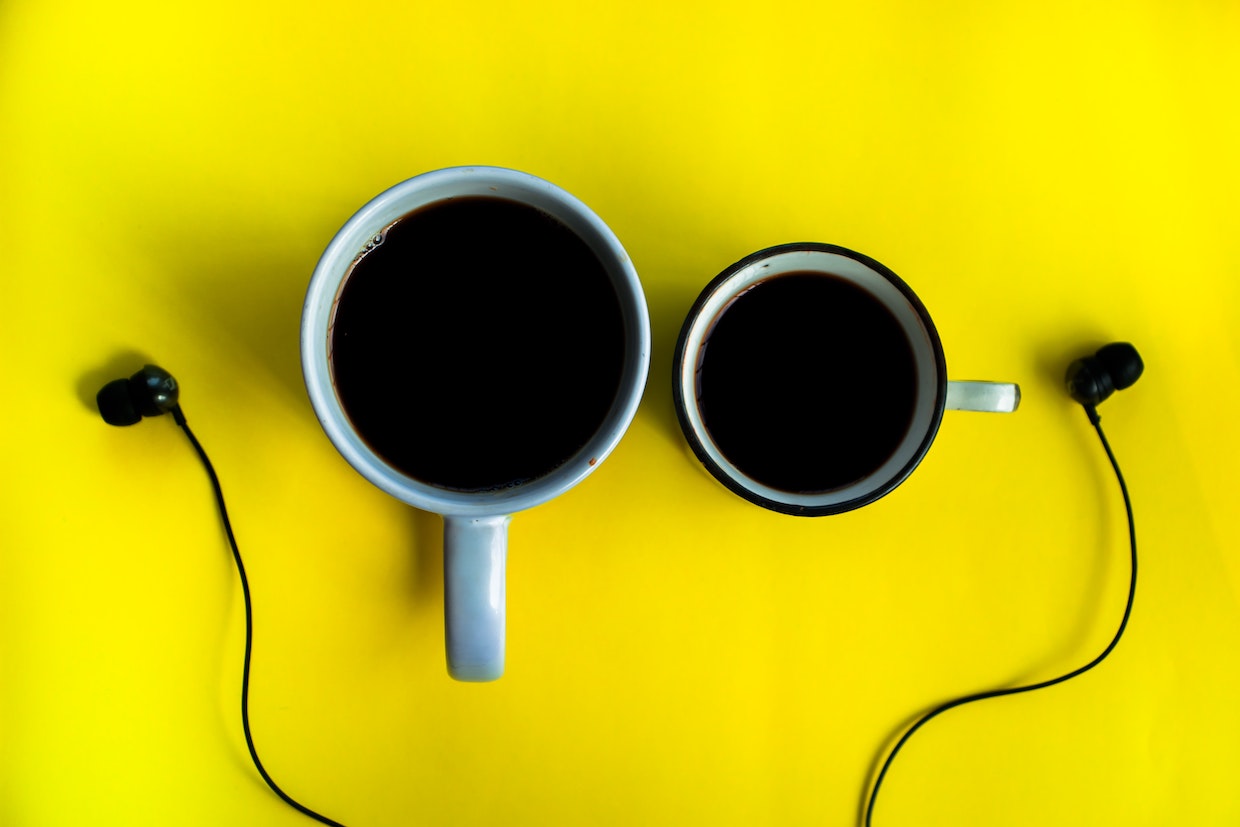New research suggests that drinking coffee and listening to music are two everyday activities that can improve cognitive performance, specifically in tasks requiring concentration and memory.
A research team at NYU that employed novel means to arrive at these unstartling results: brain monitoring technology by the futuristic name of Mindwatch (styled in all caps as MINDWATCH by the group).
Developed over the past six years by NYU Tandon School of Engineering Biomedical Engineering Associate Professor Rose Faghih, the Mindwatch involves an algorithm that analyzes brain activity from any wearable device that can monitor electrodermal activity (EDA). The study says the Mindwatch technology is “inspired by advances in wearable technologies.”
For the most recent study, published in Nature Scientific Reports, subjects wearing skin-monitoring wristbands and brain-monitoring headbands completed cognitive tests while listening to music, drinking coffee and sniffing perfumes.
“The MINDWATCH algorithm revealed that music and coffee measurably altered subjects’ brain arousal, essentially putting them in a physiological ‘state of mind’ that could modulate their performance in the working memory tasks they were performing,” the research team wrote in its summary. “Specifically, MINDWATCH determined the stimulants triggered increased “beta band” brain wave activity, a state associated with peak cognitive performance.”
According to the study, perfume sniffing resulted in more modest cognitive performance outcomes.
The NYU research team said it hopes the results will contribute to technological developments with real-life practical applications, such as a wearable device that might provide prompts such as coffee drinking or music listening in order to reach a desired “brain state.”
“The pandemic has impacted the mental well-being of many people across the globe and now more than ever, there is a need to seamlessly monitor the negative impact of everyday stressors on one’s cognitive function,” Faghih said in a summary of the research. “Right now MINDWATCH is still under development, but our eventual goal is that it will contribute to technology that could allow any person to monitor his or her own brain cognitive arousal in real time, detecting moments of acute stress or cognitive disengagement, for example.”
Find the full study here.
Does your coffee business have news to share? Let DCN’s editors know here.








Comment